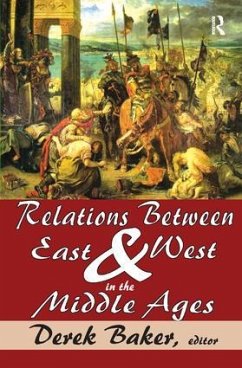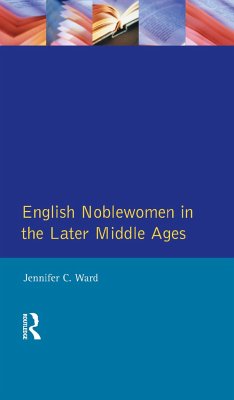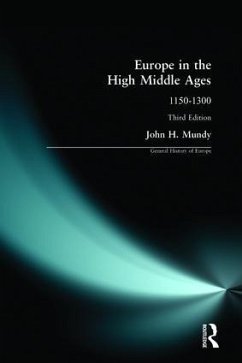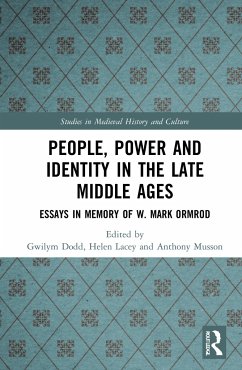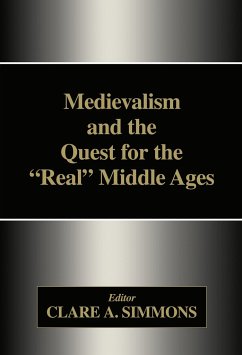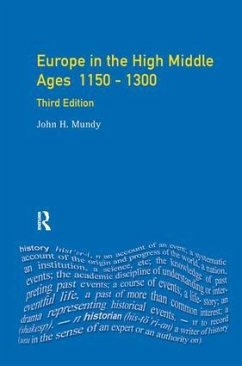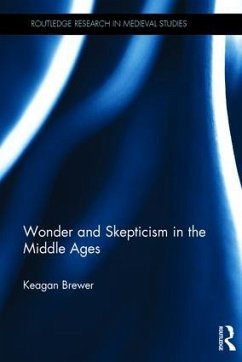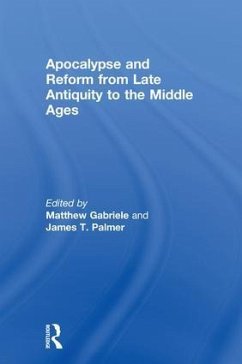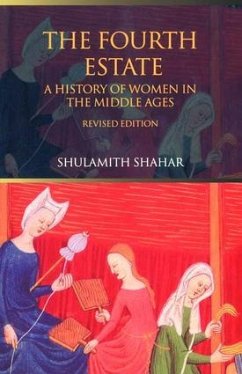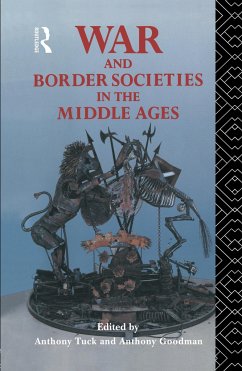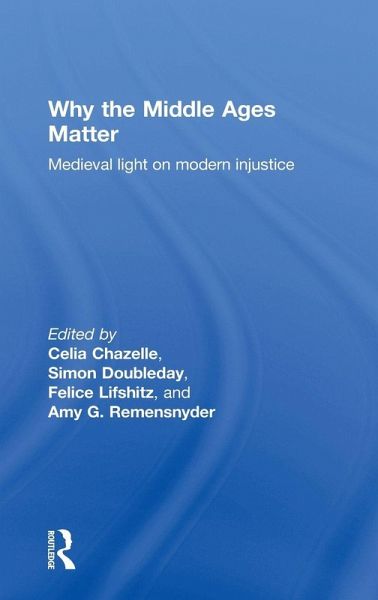
Why the Middle Ages Matter
Medieval Light on Modern Injustice
Herausgeber: Chazelle, Celia; Lifshitz, Felice; Doubleday, Simon
Versandkostenfrei!
Versandfertig in 1-2 Wochen
167,99 €
inkl. MwSt.
Weitere Ausgaben:

PAYBACK Punkte
84 °P sammeln!
The word "medieval" is often used in a negative way when talking about contemporary issues. Why the Middle Ages Matter refreshes our thinking about this historical era, and our own, by looking at some pressing concerns from today's world, asking how these issues were really handled in the medieval period, and showing why the past matters now. The contributors here cover topics such as torture, marriage, sexuality, imprisonment, refugees, poverty, work, the status of women, disability, race, political leadership and end of life care. They focus on a variety of regions, from North Africa and the Middle East, through Western and Central Europe, to the British Isles. This collection challenges many negative stereotypes of medieval people, revealing a world from which, for instance, much could be learned about looking after the spiritual needs of the dying, and about integrating prisoners into the wider community through an emphasis on reconciliation between victim and criminal. It represents a new level of engagement with issues of social justice by medievalists and provides a highly engaging way into studying the middle ages. All the essays are written so as to be accessible to students, and each is accompanied by a list of further readings.
The "lessons of history" cannot be reduced to some specious argument that knowledge of the past provides a privileged insight into the present. Nevertheless these essays show that a deep understanding of the otherness of the medieval past and of the myriad possibilities of belief, thought, and behavior of this distant and yet creative period, can help us to understand both how the medieval past has shaped our present as well as how this same past offers models for thinking and acting differently. One need not agree with all of the authors represented in this volume either in their reading of the Middle Ages or in their recommendations for the present in order to applaud them for being what everyone should be: a thoughtful, engaged and critical participant in the great adventure of life. These learned and committed essays challenge the notion that the deep past is somehow irrelevant to the present and compel contemporary society to recognize that the human condition is essentially historical and that dialogue with the past is a necessity to build a different and better future. Patrick J. Geary Distinguished Professor of History UCLA The word "medieval" is often used in a negative way when talking about contemporary issues. Why the Middle Ages Matter refreshes our thinking about this historical era, and our own, by looking at some pressing concerns from today's world, asking how these issues were really handled in the medieval period, and showing why the past matters now. The contributors here cover topics such as torture, marriage, sexuality, imprisonment, refugees, poverty, work, the status of women, disability, race, political leadership and end of life care. They focus on a variety of regions, from North Africa and the Middle East, through Western and Central Europe, to the British Isles. All the essays are written so as to be accessible to students, and each is accompanied by a list of further readings.





